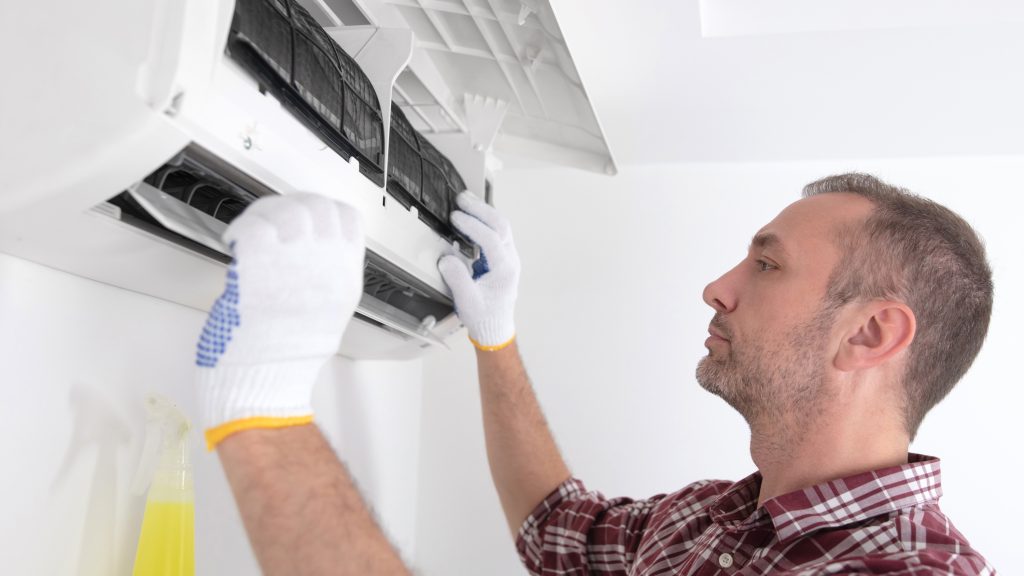Mold in your AC? Learn how to keep your air clean

Posted Jun 10, 2024 07:30:00 AM.
Last Updated May 31, 2024 02:32:17 PM.
Being a homeowner means having to deal with unexpected repairs and maintenance. One of the issues homeowners fear most is discovering mold. Mold can grow in many different areas of your residence, especially in places where it’s dark, humid, lacking airflow and full of things where mold tends to grow.
One of the unexpected areas of risk is your air conditioner, and given the importance of this HVAC service during the summer months, mold growth can be an extremely dangerous problem for you and your family.
“AC units present a risk for mold growth,” said Tracy Burgess, Service Manager at Carleton Refrigeration, Heating and Air Conditioning. “If you have mold growth in your air conditioning unit it can blow microscopic mold spores into the air circulating through your ducts. This could cause multiple health risks to anyone living or visiting your home.”
Mold is a type of fungus that requires three primary things to grow:
- Existence of wet or damp surfaces
- Oxygen
- Organic matter
AC units circulate air and the coils create condensation; organic matter can be something as simple as cardboard boxes sitting dormant against your basement foundation wall with little to no air flow. This creates an environment where mold can thrive – and it thrives fast!
Burgess says there are signs you can look for to indicate mold has arrived in your air conditioning unit
“The first thing you may notice is a musty smell,” he said.
“Mold spores create a distinct musty smell you may begin to notice throughout the house. If you are operating multiple window-style AC units, you might notice the smell in the rooms in which the units are located.”
Given the location of the AC unit, visible signs may be evident. However central air conditioning systems are harder to check visually because the coil is mounted above the furnace and hidden by the duct work.
Checking the unit and the air vents is a quick way to determine if mold growth is occurring. Another sign is recognizing whether people in your home start to show signs of allergic reaction or respiratory problems any time the AC unit is running. If you determine people in your home are getting sick during those periods, it’s critically important to have a professional inspection done of your entire HVAC system.
Regardless of whether you’re using a window unit, a freestanding portable AC unit, or central air system, your AC can be susceptible to mold without proper maintenance and regular servicing. There are many different types of mold, each with its own varying cause for concern, but black mold is certainly one that produces mycotoxins poisonous to humans.
“If you discover black mold, it’s important to act quickly to mitigate that problem,” said Burgess.
For more information or to book your service call, visit Carleton Refrigeration Heating and Air Conditioning in person, online or call them at 613-257-8282 or 1-866-557-8282.
This Content is made possible by our Sponsor; it is not written by and does not reflect the views of the editorial staff.








